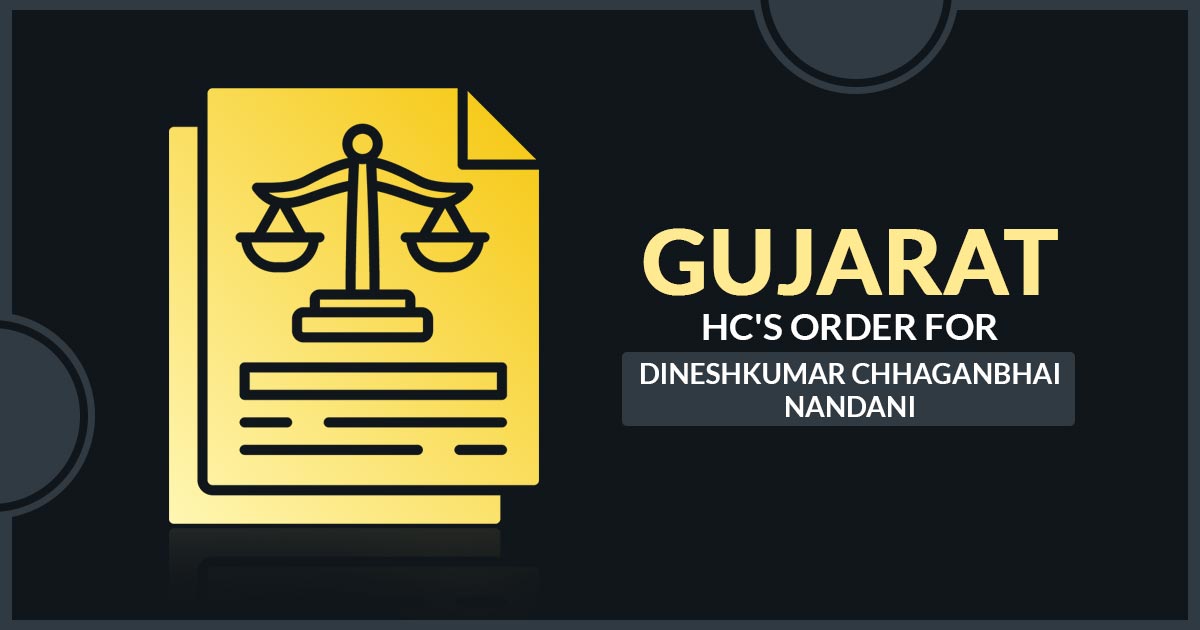
The Gujarat High Court dismissed an income tax assessment order due to procedural irregularities. The order was issued without prior notice or an opportunity for the petitioner to put their point. The court determined that a show cause notice, along with a draft assessment order, was sent with an unreasonably short deadline which is less than 12 hours to give a reply.
The case was filed by, who filed an income tax return(ITR) for the Assessment Year 2014-15 in July 2014, revealing a total income of Rs. 3,39,730/-. In accordance with the return processing under Section 143(1) of the Income Tax Act, 1961, the Income Tax Officer (Respondent No.1) notice was released under Section 148 of the Act in March 2021, asking the petitioner to file an income tax return for the same assessment year. The petitioner submitted the required return of income promptly acting as per the instruction.
As a result, the petitioner received several notices under Section 143(2) and 142(1) of the Act, requesting additional details. In February 2022, a show cause notice was issued under Section 144 of the Act. The petitioner collected introductory objections and presented supporting evidence, urging the authorities to drop the assessment proceedings. However, the objections were rejected in March 2022, as communicated through a letter.
In March 2022, the Additional/Joint/Deputy/Assistant Commissioner of Income Tax (Respondent no. 2) issued another show-cause notice, giving the petitioner only 12 hours to respond. The petitioner as a quick response filed partial submissions/replies and requested a video conference hearing, which was accepted. Notwithstanding, an assessment order was issued under Section 147 read with Section 144B of the Act. Thus, the petitioner reached the High Court seeking a fair decision.
The division bench of Justices Vipul M Pancholi and DM Desai observed that the requested documents were not provided to the petitioner, and there was no opportunity for cross-examination within the extremely limited time frame of less than 12 hours. The bench further noted, “Even otherwise, it is difficult for the petitioner to submit a complete reply to the respondents within such a short period of less than 12 hours.”
The petitioner’s counsel, BS Soparkar, argued that the respondents’ action of allowing only 12 hours to respond to the show cause notice violated the principles of natural justice. Soparkar also mentioned that the petitioner had hastily submitted a reply, but the authorities did not provide a sufficient opportunity for a hearing.
Advocate Soparkar clarified that the petitioner had requested certain documents for verification and the chance to cross-examine a witness whose statement formed the basis of the petitioner’s explanation. However, the requested documents were not provided, and no opportunity for cross-examination was granted, which violated the principles of natural justice. Therefore, Soparkar urged the Gujarat High Court to nullify the assessment order on these grounds and send the matter back to the authorities for reconsideration.
On the other hand, the respondents’ representative, Advocate Karan Sanghani, opposing the petition, argued that the petitioner had failed to respond to various notices before the show cause notice (SCN) for the draft assessment order.
Sanghani explained that the authorities had requested the petitioner to provide the necessary details, but the petitioner did not comply. Additionally, Sanghani clarified that the petitioner had indeed submitted a reply to the show cause notice and was given the opportunity for a video conference hearing. Hence, Sanghani asserted that the petitioner’s claim of only 12 hours for a reply was baseless.
It was contended that the petitioner was not prejudiced by the lack of sufficient opportunity, as the respondents had issued several income tax notices to the petitioner, which went unanswered.
Nevertheless, the bench disregarded the argument presented by the Standing Counsel and expressed their views saying, “When the show cause notice-cum-draft assessment order is issued to the petitioner, reasonable/adequate opportunity was required to be given to him. In the present case, the adequate opportunity was not given to the petitioner and therefore only on this ground the petition deserves to be allowed.”
Important: Solved! How to Check Income Tax Notices Fake or Genuine?
Consequently, the bench nullified and invalidated the challenged assessment order.
| Case Title | Dineshkumar Chhaganbhai Nandani Vs ITO |
| Citation | R/SPECIAL CIVIL APPLICATION NO. 7864 of 2022 |
| Date | 19.06.2023 |
| Appearance | Mr B S Soparkar, Mr Karan Sanghani, Mrs Kalpanak Raval |
| Gujarat HC | Read Order |









